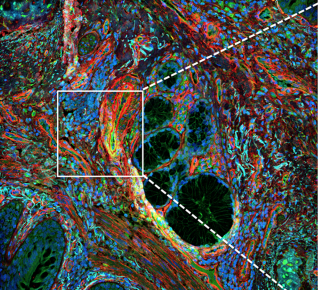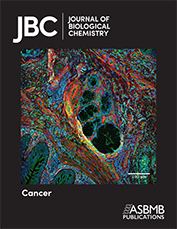
A paper published in 2017 from M. Sharon Stack, the Anne F. Dunne and Elizabeth Riley Director of the Harper Cancer Research Institute at the University of Notre Dame, has been selected as a featured article in the special virtual issue of the Journal of Biological Chemistry that highlights cancer research.

According to the journal, this special virtual issue aims to highlight “primary research papers from the last three years with a focus on discoveries on the mechanistic basis of cancer cell signaling, reprogramming of tumor metabolism, cancer genetics and the tumor microenvironment, and the development and characterization of drugs for cancer treatment.” Special issues are developed by the journal editorial team to highlight a topic and subsequent papers that represent exciting advances in the field.
The chosen study, “Post-translational modification of the membrane type 1 matrix metalloproteinase (MT1-MMP) cytoplasmic tail impacts ovarian cancer multicellular aggregate dynamics,” looks at how ovarian cancer cells uniquely spread throughout the peritoneal cavity. The researchers evaluated how, in the abdominal space, previously shed ovarian cancer cells bind together forming lethal structures called multicellular aggregates. Those aggregates float in the cavity until eventually adhering and penetrating peritoneal tissues. This mode of metastasis, along with vague symptoms that cause diagnostic delays, makes ovarian cancer one of the most deadly cancers.
Co-authored by staff scientist Jing Yang and recent Notre Dame graduates William Kasberg, Angela Celo and Kristal Quispe, the team studied a membrane proteinase, called MT1-MMP, which is an enzyme that begins the breakdown of connective tissue proteins. MT1-MMP is generally not detected in normal ovarian tissue or even in benign ovarian tumors. The researchers found that phosphorylation of MT1-MMP played a key role in regulation of multicellular aggregate dynamics. Stack said the discovery is important because understanding the regulation of phosphorylation could lead to drug discoveries that target and inhibit the process.
“Our research team is honored that the Journal of Biological Chemistry chose our paper to be featured for their cancer virtual special issue,” said Stack. “It shows the impact of our study and the potential for our fundamental research to eventually influence how metastatic ovarian cancer is treated.”
The original study was funded by the National Institutes of Health and the Leo and Anne Albert Charitable Trust. To learn more about the study, please visit https://research.nd.edu/news/notre-dame-cancer-researchers-publish-new-papers-on-ovarian-cancer-tumor-growth/.
To view the special virtual issue, please visit http://www.jbc.org/site/vi/cancer/.
The Harper Cancer Research Institute is dedicated to supporting innovative and integrative research that confronts the complex challenges of cancer. Researchers at the University of Notre Dame and Indiana University School of Medicine-South Bend are united in multi-disciplinary teams with a common goal: to increase the survival of all patients diagnosed with cancer. To learn more about the institute, please visit harpercancer.nd.edu.
Contact:
Brandi R. Wampler / Research Communications Specialist
Notre Dame Research / University of Notre Dame
brandiwampler@nd.edu / 574.631.8183
research.nd.edu / @UNDResearch
About Notre Dame Research:
The University of Notre Dame is a private research and teaching university inspired by its Catholic mission. Located in South Bend, Indiana, its researchers are advancing human understanding through research, scholarship, education, and creative endeavor in order to be a repository for knowledge and a powerful means for doing good in the world. For more information, please see research.nd.edu or @UNDResearch.
Originally published by at harpercancer.nd.edu on December 13, 2019.